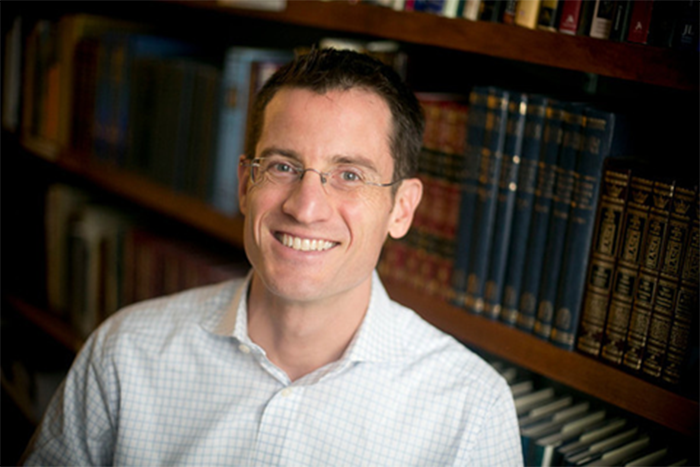Every job has its tools. In my industry (at least, back in the old days), there were pencils for students, chalk/white boards for teachers, and books for everyone. Such tools had benefits and limitations. When used together, they had the potential to generate profound illumination.
Tools are everywhere. Even the , the portable Tabernacle the Israelites carried throughout their years of desert wandering, had its furniture, accoutrements, and tools. The itself required special tools: it needed "tongs (malkaḥeha) and firepans (maḥtoteha) of pure gold" (Exodus 25:38; see also Exodus 37:23). These must have been spectacular items, simultaneously glistening in the flickering light and heavy in the hand. Their usefulness was beyond doubt: they enabled the menorah's lights to be ignited, extinguished, and cleaned without endangering people or the structure itself.
Because tools rarely capture our imagination, we may be tempted to quickly move on to more exciting passages in the parashah. This impulse would leave some mysteries of these otherwise nondescript tools in the dark, and we would miss something valuable about ourselves in the process.
Consider those tongs: What was their purpose, and how were they made? Rashi says those tongs were used to remove or relocate wicks. No doubt this would protect fingers and hands from the flames and scalding oil. Elsewhere in the Bible, Isaiah says that a seraphic angel used tongs to move hot coals (Isaiah 6:6). For the rabbis, tongs are the appropriate tool to carefully extract snakes (BT Shabbat 110a; BT Gittin 56b). In brief, tongs are tools to manipulate dangerous things from afar.
Since managing molten metal without getting burned is no easy task, how could metal tongs be made if one did not already have metal tongs? One needs tongs to make tongs. This puzzled the rabbis. They proclaimed that the first tongs were made at twilight just before the world's first Shabbat, alongside Balaam's talking donkey, the manna, and the fissure that swallowed Korach and his minions, among other items (Pirkei Avot 5.6). But if the first tongs were a miracle at the time of Creation, who made them? A debate ensued: some sages insisted that those first tongs were made by Heaven, while others argued they were made by humans in a mold (BT Pesachim 54a; Sifrei Devarim 355.6). The import of this debate boils down to this: had the tongs been divinely made, they demonstrate God's interest in and concern for basic human needs; whereas if the tongs had been humanly manufactured, their inclusion in that list of divinely wrought miracles demonstrates how easy it is to mistake human ingenuity for divine handiwork. Either way, those first tongs exemplify the connections between God and humankind.
If those tongs were extraordinary, the firepans were comparatively common. In addition to functioning within the holy Mishkan, firepans were used by:
- the overly zealous Nadav and Abihu who were killed for offering "alien fire" to God (Leviticus 10)
- Aaron in the ritual of the scapegoat (Leviticus 16)
- Korach and his minions who were swallowed by the earth for unjustifiably challenging Moses' leadership (Number 16).
Though Solomon forged golden firepans for the holy Temple (I Kings 7:50), they were stolen away by Babylonian King Nebuchadnezzar's military because King Zedekiah, the last king of Judah, did what was displeasing before Adonai (II Kings 24:19- 25:15). It seems that when they are misused, firepans can bring about severe consequences.
When used well, however, tongs keep fiery and dangerous things at a distance and firepans bring messy ash, burning incense, and hot coals close by. One tool is used to select hazardous items individually and carefully manipulate them; the other tool collects items en masse regardless of how dodgy they may be. Each is indispensable for the menorah's illumination of the Mishkan.
Just as these tools are essential for the menorah, Mishkan, and world at large, they are also at work inside us. Rabbeinu Baḥya (at Exodus 25:38) taught:
Deliberation and thought are "tongs" with which to extract Torah knowledge, as it is written in Proverbs: "A person of understanding will attain wise counsel" (Proverbs 1:5). Thought begins in the heart, which is likened to a firepan. Just as a firepan is a tool to light the lamp, so the heart is the tool of the mind when studying Torah.
One's heart is like a firepan: throughout one's life it encounters and naturally embraces various ideas of all sorts, dangerous and benign alike. Like a firepan, one's heart then carries those ideas to the cool tongs of the mind, which carefully examines them one by one to discern good from bad. Through this deliberative process, a person of understanding can attain the Torah's wise counsel and be illuminated.
If our hearts are firepans collecting sundry whims and glimmering notions, and our minds are tongs selecting which of them are worthy to blaze forth for a while, we would do well to cherish both tools and appreciate their complementary roles in our lives. When we allow our internal tongs and firepans to function as they should, our lives' menorahs will glitter like the pure gold they are.
Explore Jewish Life and Get Inspired
Subscribe for Emails

